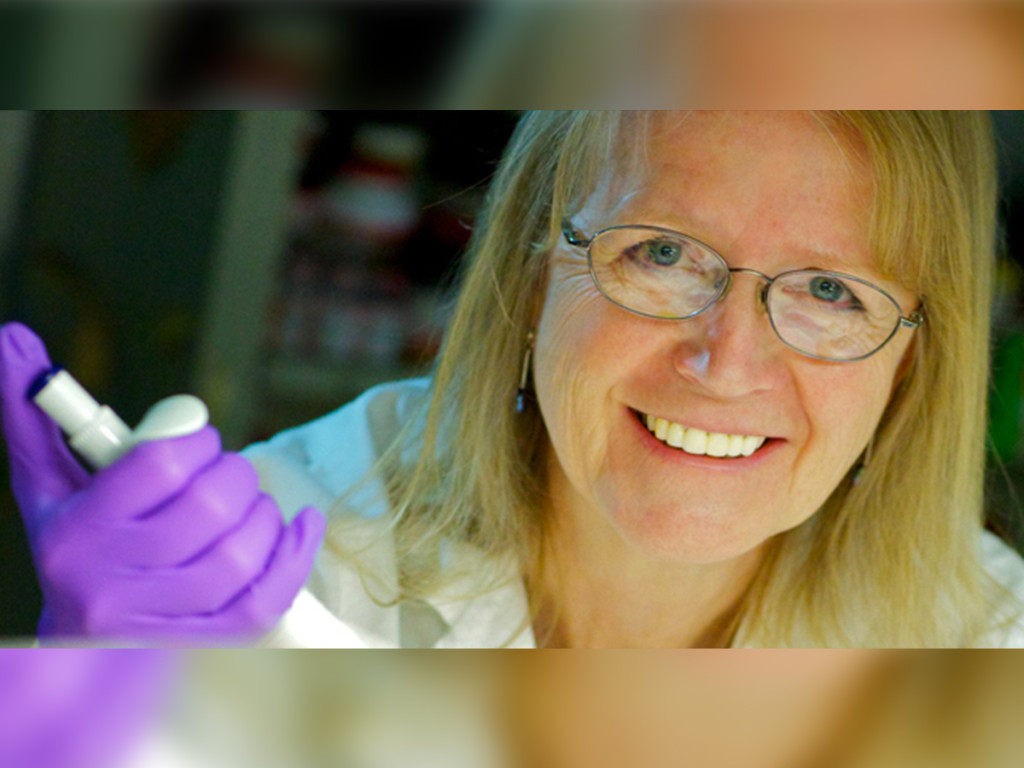 Ameae Walker, professor of biomedical sciences in the UCR School of Medicine, is developing a new approach to providing vaccines to infants that involves vaccinating the mother first. The study was funded by a grant to Walker from the Eunice Kennedy Shriver National Institute of Child Health and Human Development of the National Institute of Health.
Ameae Walker, professor of biomedical sciences in the UCR School of Medicine, is developing a new approach to providing vaccines to infants that involves vaccinating the mother first. The study was funded by a grant to Walker from the Eunice Kennedy Shriver National Institute of Child Health and Human Development of the National Institute of Health.
Breast milk has been known to carry antibodies that are advantageous toward preventing asthma and diabetes. Researchers discovered that breast milk can also carry maternal immune cells, determined by the mother’s repeated exposure to infections. The immune cells enter an infant’s thymus where they can help the child’s developing immune system recognize the same infectious organisms the mother has seen. Researchers have called this process “maternal educational immunity.”
A link was discovered through foster nursing models which indicated that vaccinating the mother could be the same as vaccinating the breastfed child. “Some vaccines are not safe to give a newborn baby and others just don’t work very well in newborns,” Walker said in an interview with UCR Today. “If we can instead vaccinate mom or boost her vaccination shortly before she becomes pregnant, transferred immune cells during breast feeding will ensure that the baby is protected early on.”
Ameae Walker and her team tested maternal educational immunity with Tuberculosis (TB), a disease that worsens as it develops antibiotic-resistant strains. While the vaccine for TB can protect infants against the worst symptoms, it does not cover the respiratory effects.
“In some instances,” said Walker, “Our work has shown that immunity against TB is far more effective if acquired through the milk than if acquired through direct vaccination of the baby. Of course, clinical trials will need to be conducted to test whether this is the case in humans.”
These results could help protect infants in developing parts of the world where TB is a larger problem by immunizing them before they can be affected by the disease. According to the World Health Organization, in 2014, an estimated 1 million children became ill with TB and 140,000 children died of TB.
Walker was joined by H. Konrad Muller, a visiting collaborator from the University of Tasmania, Australia, Virginia Nguyen, an undergraduate and Mrinal K. Ghosh, the first author of the research paper and a project scientist. The research results appeared on the September 15 issue of Journal of Immunology.








